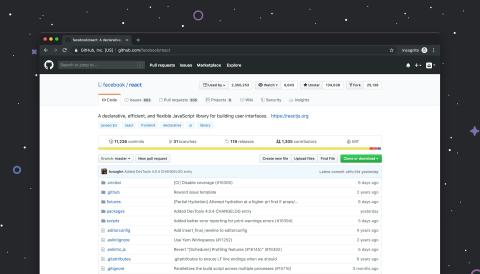
GitHub Copilot, an AI-powered coding assistant developed by GitHub in collaboration with OpenAI, has been a game-changer in the software development industry. By suggesting lines of code, entire functions, and even offering explanations, Copilot aims to enhance productivity, reduce repetitive tasks, and make coding more accessible. However, like any tool, it has its strengths and weaknesses, and it's important to consider alternatives depending on specific needs and preferences.
Pros of GitHub Copilot
- Increased Productivity: GitHub Copilot can significantly speed up the coding process by auto-suggesting code snippets, helping developers focus on higher-level tasks rather than getting bogged down in boilerplate code. This can be particularly useful for repetitive tasks, such as setting up boilerplate code, which saves time and effort.
- Learning Tool: For beginners, Copilot can act as an interactive learning tool. It provides real-time suggestions and explanations, helping new programmers understand coding patterns, syntax, and best practices. It also exposes users to new libraries and functions they might not be aware of.
- Support for Multiple Languages: Copilot supports a wide range of programming languages, making it versatile for developers working across different tech stacks. From Python to JavaScript, Go to Ruby, it offers support across languages, which broadens its applicability.
- Seamless Integration: Being tightly integrated with Visual Studio Code (VS Code), one of the most popular integrated development environments (IDEs), Copilot is easy to set up and use for millions of developers who already work within this environment.
- Contextual Suggestions: Copilot is not just a code completion tool but a context-aware assistant. It can understand the context of the code you are writing and offer suggestions that are more relevant and tailored to your specific task.
Cons of GitHub Copilot
- Code Quality and Security Concerns: One of the primary concerns with Copilot is the quality and security of the code it generates. Since it pulls from a vast corpus of public code repositories, there is a risk that it could suggest insecure, outdated, or poorly written code. Developers must review and understand the suggestions before implementation to avoid introducing vulnerabilities.
- Dependence on AI: Over-reliance on AI for coding can lead to skill atrophy. Developers might become overly dependent on Copilot’s suggestions, potentially leading to a lack of deeper understanding of the code they write, which is crucial for debugging and problem-solving.
- Intellectual Property Issues: Copilot has been trained on publicly available code, which raises questions about intellectual property. There are concerns that it might suggest code snippets that are too similar to copyrighted code, potentially leading to legal issues for developers who unknowingly use it.
- Cost: While Copilot offers a free trial, it eventually comes with a subscription fee. For individual developers or small teams, this cost might be a concern, especially when there are free or lower-cost alternatives available.
- Limited by Language Models: Copilot’s suggestions are only as good as the data it has been trained on. If the training data lacks diversity or contains biases, these issues may be reflected in its suggestions. Additionally, Copilot may struggle with newer or less common programming languages and frameworks.
Alternatives to GitHub Copilot
- TabNine: TabNine is an AI-powered code completion tool that supports a wide range of programming languages. Unlike Copilot, which integrates deeply with VS Code, TabNine can be integrated with multiple IDEs, including JetBrains products, Sublime Text, and others. TabNine also offers a more customizable experience, allowing users to train the AI on their own codebases for more relevant suggestions.
- Kite: Kite is another popular AI coding assistant, known for its smooth integration with several IDEs and its ability to provide real-time code completions and documentation. Kite offers features like multi-line completions and intelligent snippets, similar to Copilot. However, it is known for being more lightweight and focused on Python and JavaScript. (NOTE: Kite has been abandoned since 2021)
- Codeium: Codeium is a free alternative to Copilot, designed to offer similar code completion and suggestion features. It supports multiple programming languages and IDEs and has gained popularity due to its open-source nature and community-driven improvements. Codeium also emphasizes privacy, claiming not to collect or share user data.
- IntelliCode: IntelliCode is Microsoft's AI-powered assistant built into Visual Studio. It offers context-aware code completions, suggestions, and code refactorings, but it is more tightly integrated with the Microsoft ecosystem. IntelliCode uses a smaller scope of training data compared to Copilot, which may result in fewer suggestions but potentially more relevant ones.
- Tabby: Tabby is an emerging alternative to Copilot, designed as an open-source, self-hosted code completion tool. It allows developers to maintain control over their code suggestions, making it a suitable choice for organizations with strict data privacy and security requirements. Tabby can be customized to better suit specific workflows and development environments.
Conclusion
GitHub Copilot represents a significant leap forward in the realm of AI-assisted coding, offering numerous benefits such as increased productivity and contextual code suggestions. However, it also comes with potential drawbacks, including concerns about code quality, security, and intellectual property. Depending on your specific needs, budget, and development environment, alternatives like TabNine, Kite, or Codeium might be worth considering. Ultimately, the choice of tool will depend on the balance between convenience, control, and the specific requirements of your projects.
 Drupal Development and Consultation - Proudly operating in The United States of America
Drupal Development and Consultation - Proudly operating in The United States of America

Comments